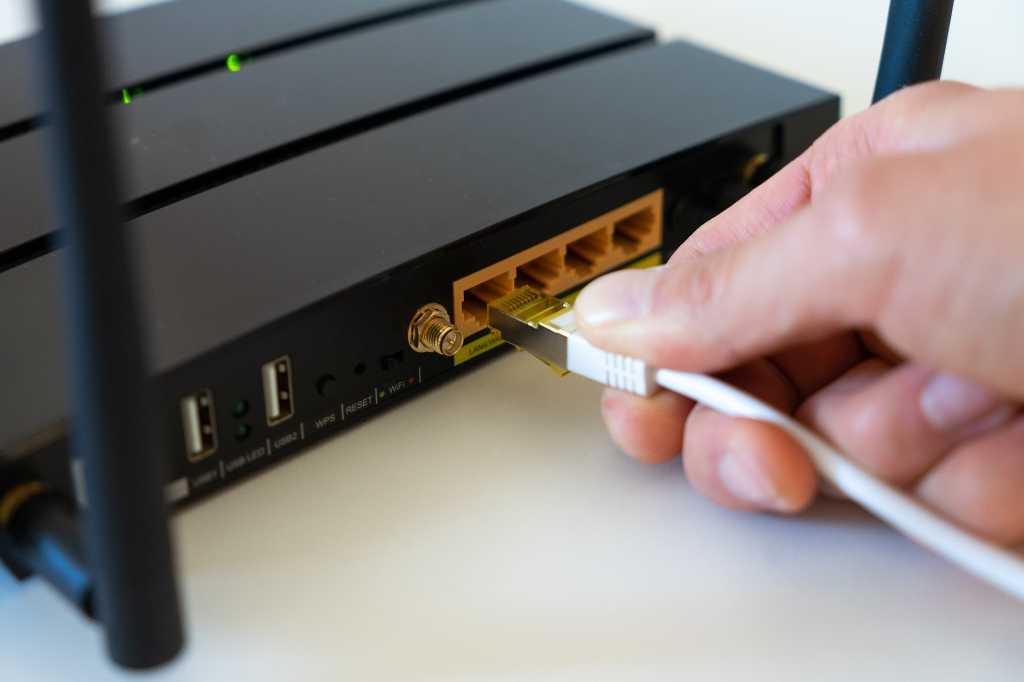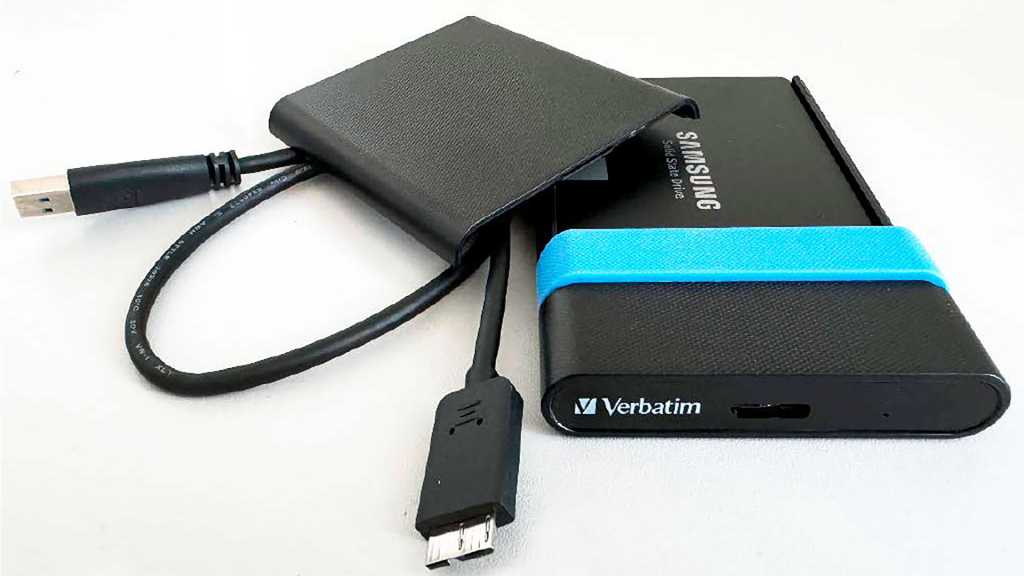Broadband internet is essential in today’s world, as vital as electricity or water. Yet, many internet service providers (ISPs) impose data caps, limiting the amount of data users can consume monthly. These caps create unnecessary stress, financial burdens, and are ultimately unfair. The FCC is finally investigating these practices, and it’s crucial for consumers to share their experiences and advocate for change. This article explores the problems with data caps and guides you on how to submit your comments to the FCC.
The Stress and Anxiety of Data Limits
Imagine constantly monitoring your water usage, worried about exceeding a predetermined limit and incurring extra charges. This is the reality for many internet users living under the shadow of data caps. I personally pay over $200 each month to Comcast for internet and TV, but my family of four is restricted to 1.23TB of data. Exceeding this limit triggers a complex and confusing fee structure, adding further stress to an already frustrating situation.
The overage fees involve purchasing additional “data blocks” at $10 per 50GB, up to a maximum of $100. Comcast offers a single courtesy waiver annually, but this disappears if the cap is exceeded twice in a year. Historically, data caps haven’t been uniformly enforced across the US, further highlighting their arbitrary nature. For instance, Comcast previously suspended data overage fees in several northeastern states due to competition, then reinstated them, only to remove them again after public outcry. This inconsistency underscores the capricious and exploitative nature of data caps.
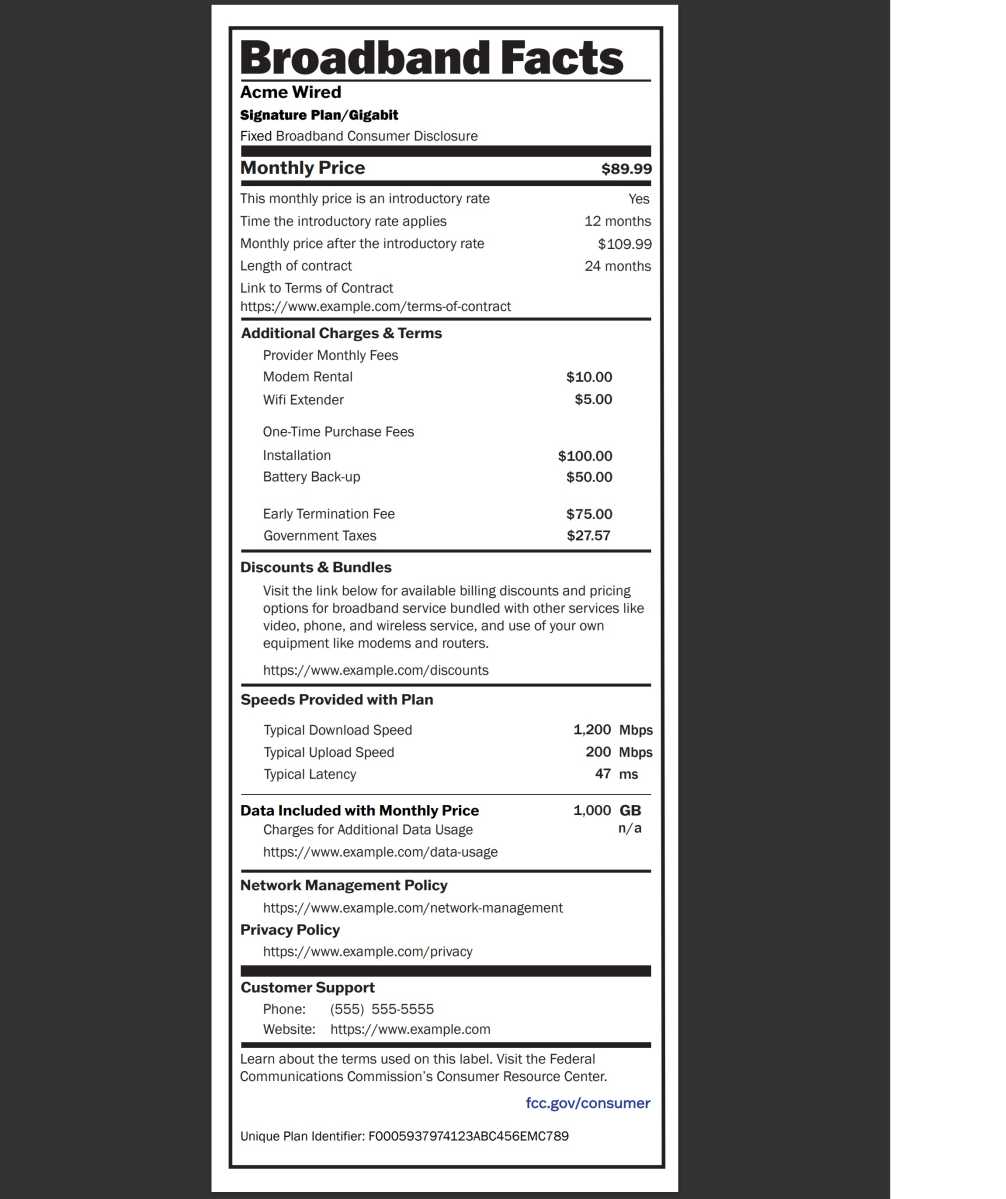 FCCThe FCC has attempted to improve transparency regarding ISP fees and services through informational labels.
FCCThe FCC has attempted to improve transparency regarding ISP fees and services through informational labels.
Even with the supposed “courtesy month,” errors occur. I was wrongly charged an overage fee despite being within the waiver period. While Comcast admitted to a “mistake,” the incident added to the ongoing anxiety of managing data usage. My family’s internet activities aren’t excessive, yet we regularly find ourselves approaching the limit, forcing us to make decisions about which online activities to prioritize. This constant monitoring and worry resonates with FCC chairwoman Jessica Rosenworcel, who acknowledges the “mental toll” and “frustration” these caps impose.
The Injustice of Unequal Access
The availability of competitive broadband options varies significantly across the US. While major cities often have multiple ISP choices, many suburban areas, particularly gated communities and apartment complexes, are stuck with a single provider. This lack of competition allows ISPs to impose data caps without fear of losing customers.
I’ve personally investigated alternatives, including T-Mobile’s 5G home internet, which offered both lower prices and unlimited data. Unfortunately, the signal strength wasn’t sufficient for reliable service at my location. A nearby town enjoys affordable, unlimited gigabit internet from a local ISP, a stark contrast to the limited and expensive service I receive. This disparity highlights the inequity of the current broadband landscape.
The Arbitrary Nature of Data Caps
The argument for data caps often revolves around network management. However, the reality is that these limits are artificial and arbitrary. Many wireless providers offer unlimited calls, texts, and even data. International travel often provides access to affordable, unlimited data SIM cards, demonstrating the feasibility of unrestricted internet access.
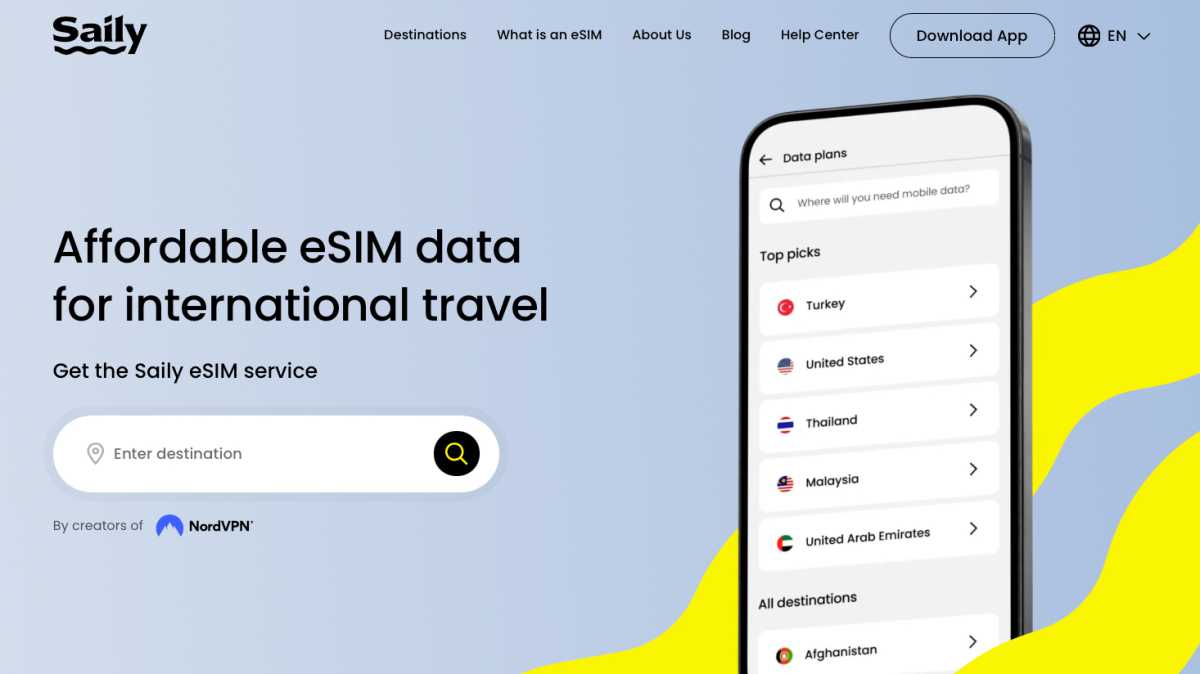 Saily eSIMsSaily eSIMs offer an example of affordable, unlimited data options available internationally.
Saily eSIMsSaily eSIMs offer an example of affordable, unlimited data options available internationally.
Companies like Comcast, which generate billions in profit, have the resources to invest in infrastructure and provide truly unlimited broadband. However, the lack of competition allows them to maintain these restrictive practices. This is precisely why government intervention is necessary, and why your voice is crucial in this fight.
Making Your Voice Heard: How to File a Comment with the FCC
The FCC is actively seeking public input on the issue of data caps. You can contribute by submitting a comment through the FCC’s Express Comment Filing System. The key is to enter the correct docket number, which is 23-199, associated with the “Data Caps in Consumer Broadband Plans” proceeding.
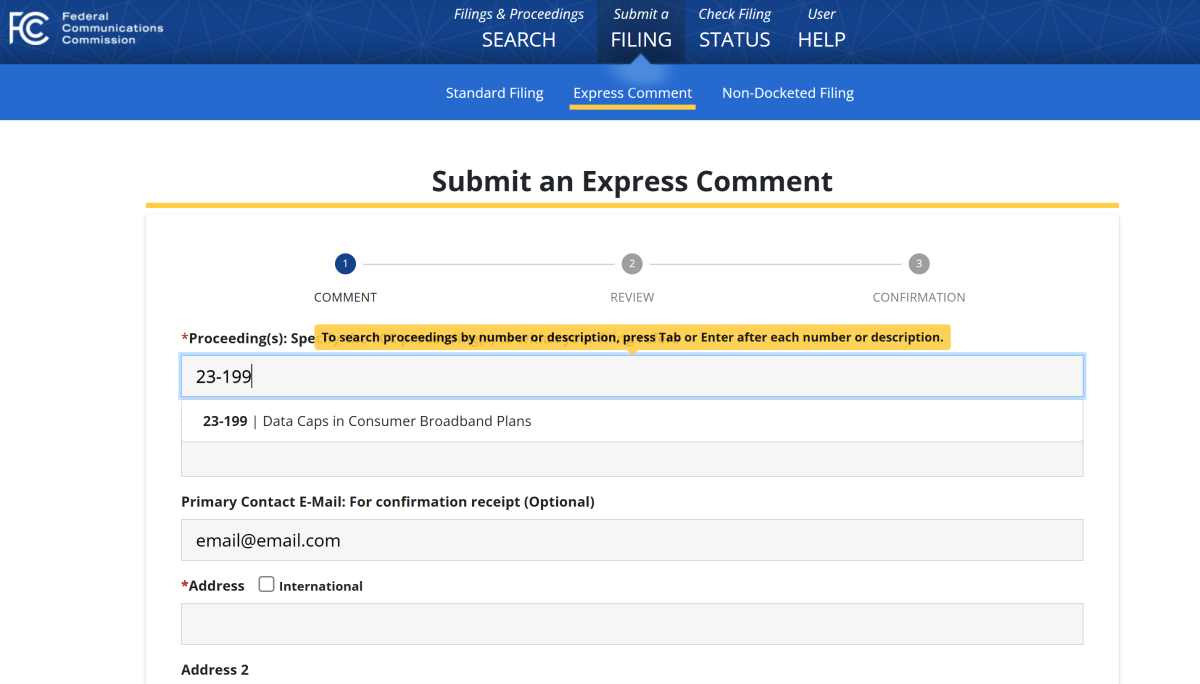 The FCC’s electronic comment filing system.
The FCC’s electronic comment filing system.
Fill out the required fields, but remember that your comments are part of the public record. The deadline for submitting comments is November 14, 2024, with replies accepted until December 2, 2024. This is your opportunity to share your experiences with data caps and advocate for a fairer and more accessible internet for everyone. Don’t miss this chance to make a difference.



